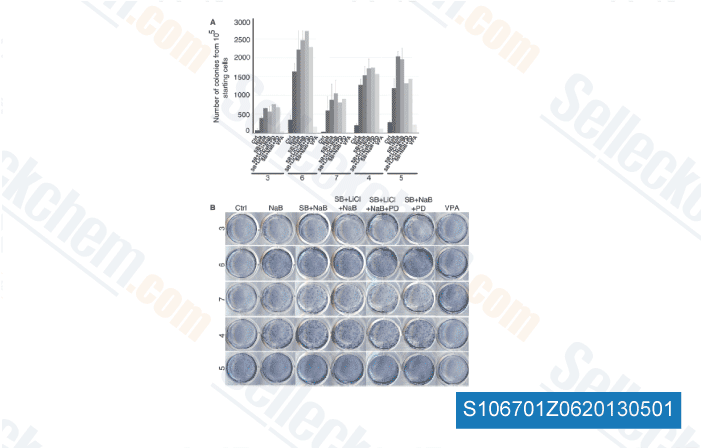The second model we utilised was primarily based on infection with H. hepaticus in mice that received antibodies directed at the IL ten receptor. In these mice irritation develops over a course of four weeks and the two innate and adaptive immune responses are concerned on this continual model of colitis. In the two designs, dectin one deficient mice didn’t show any significant or full article constant distinctions in bodyweight, colon irritation, systemic irritation and cytokine responses suggesting that the program of inflam mation will be the same for WT and dectin one mice in these designs. This was surprising since in vitro experi ments showed that dectin one deficiency had important results on cytokine responses towards the mouse faeces. It could be that through intestinal irritation other PRRs compensate to the lack of dectin 1.
a number of other receptors are identified to recognise fungi including TLRs. mannose receptor. dectin 2 and DC Indicator and its mouse homologue Signal R1. Due to the fact bacteria are the dominant bowel inhabitants and only about 1% with the intestinal microbiome includes fungi. it might also selleck inhibitor be probable that dectin one invol vement in intestinal inflammation is overwhelmed by responses towards the bacterial component. Different PRR happen to be proven to perform a significant function in human IBD and dectin 1 continues to be proven to co signal with TLR2 and TLR6 to the production of different pro inflammatory cytokines. Clearly, despite the fact that our information recommend dectin 1 signalling is redun dant in intestinal inflammation TLR2 and or TLR6 deficiency does affect experimental colitis via separate mechanisms indicating that dectin 1 deficiency won’t appear to have an impact on TLR signalling.
This was also indi cated by our observation of typical responses to TLR ligands other that dectin one in  deficient cells. Certainly, a mutation uncovered in human dectin 1 which leads to par tial dectin one deletion continues to be proven to not be involved in IBD. It is possible that dectin 1 becomes extra relevant when the fungal burden in the intestine increases, for instance as a consequence of antibiotic remedy or infection. Conclusions Our in vitro data recommend that dectin one is able to induce a cytokine response in direction of mouse faeces, however dec tin one deficiency in mice won’t impact the course of inflammation in two versions of experimentally induced colitis suggesting that dectin 1 signalling is redundant in experimental colonic inflammation induced by both DSS or H. hepaticus in mice. Background Gene expression is controlled above a broad selection with the transcript degree via complicated interplay amongst epige netic modifications, DNA regulatory proteins, and micro RNA molecules. Genome broad screening of expression profiles has presented an expansive standpoint on gene regulation in wellness and disorder.
deficient cells. Certainly, a mutation uncovered in human dectin 1 which leads to par tial dectin one deletion continues to be proven to not be involved in IBD. It is possible that dectin 1 becomes extra relevant when the fungal burden in the intestine increases, for instance as a consequence of antibiotic remedy or infection. Conclusions Our in vitro data recommend that dectin one is able to induce a cytokine response in direction of mouse faeces, however dec tin one deficiency in mice won’t impact the course of inflammation in two versions of experimentally induced colitis suggesting that dectin 1 signalling is redundant in experimental colonic inflammation induced by both DSS or H. hepaticus in mice. Background Gene expression is controlled above a broad selection with the transcript degree via complicated interplay amongst epige netic modifications, DNA regulatory proteins, and micro RNA molecules. Genome broad screening of expression profiles has presented an expansive standpoint on gene regulation in wellness and disorder.
Transcriptase Signal
Telomerases are part of a distinct subgroup of RNA-dependent polymerases.
